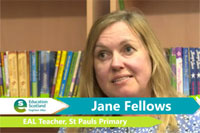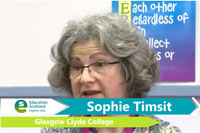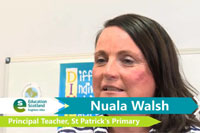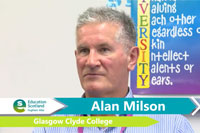Working with ESOL parents through storytelling
This collaborative family learning approach to working with ESOL parents through storytelling took place in Glasgow during session 2018-19. At the heart of the approach was the recognition that parents and families, for whom English is an additional language, wished to increase their confidence and capacity to be able to read to their children in English and support them with language based homework. Families who took part expressed that they had difficulty in a range of areas including: understanding the vocabulary, pronouncing words and phrases, using character voice and not being able to follow the flow of the story, especially when the story used rhyme.
A course was developed that deals with standard areas of ESOL provision such as grammar, vocabulary, reading and writing alongside identified concerns such as how to read and engage children in a story and how to use interrogative questioning as a creative solution to this issue.
Aims
The aim of this course was initially to show how a partnership approach could help parents and families to gain practical skills and knowledge to engage more effectively in their children’s learning through storytelling. Using a family learning approach Glasgow Clyde College staff delivered a course over a 12 week period with Primary School colleagues. The course included areas such as:
- Grammar
- Vocabulary
- Reading and writing
- How to read and engage children in a story
- How to use interrogative questioning.
What changed as a result of the course?
This course has been very successful and the school has seen the following improvement and impacts in parents:
- greater knowledge and awareness of grammar and vocabulary while learning the skills of reading to their children in English
- more confidence to read to their children, as part of school homework but also outwith this. Many parents have joined their local library
- greater confidence to develop their own learning and go on to further learning
- increased levels of attainment amongst children whose parents have participated in the course
- greater ability to engage more effectively in their children’s learning and get involved in the wider life of the school
These videos showcase the impact that this course and the collaborative family learning approach has had to attainment levels of children in school and to parents as adult learners.




